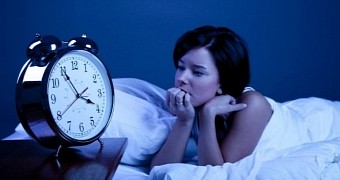This week, researchers published a rather worrying study saying that guys and gals who have trouble falling asleep at night are more likely to struggle with keeping their blood pressure in check.
The report in question, available in the American Heart Association's journal Hypertension, shows that hypertension is more common among insomniacs who toss and turn for quite a while before finally falling asleep.
How trouble sleeping correlates with hypertension
The West China Hospital researchers behind this study say that, as part of their investigation, they monitored several hundred volunteers over the course of one night and the day after it. Of these volunteers, 219 were chronic insomniacs and 96 were normal sleepers.
The focus was on determining how long the study participants took to fall asleep and what their blood pressure was the day after a more or less peaceful slumber. Variables such as sleep apnea, diabetes, obesity, smoking, and alcohol and caffeine consumption were taken into consideration.
In their paper in the American Heart Association's journal, the West China Hospital specialists detail how, having carried out these experiments, they found that the insomniacs who took longer than 14 minutes to fall asleep were 300% more likely to develop hypertension.
What's more, it appears that insomniacs who took longer than 17 minutes to finally fall asleep were an impressive 400% more likely to be diagnosed with hypertension at some point in their life than the volunteers who simply turned off the light and instantly fell asleep.
A better understanding of insomnia
Most people assume that it is a condition that manifests itself during nighttime. However, recent studies indicate that insomniacs are forever hyper-aroused, meaning that they find it downright impossible to relax and are always alert.
Some researchers argue that this is probably the reason insomniacs can't rely on coffee, sugary treats or short naps to give them a sudden and well-deserved boost of energy. In fact, this state of constant hyper-arousal might explain why insomnia correlates with a high risk of hypertension.
“We observed a strong correlation between the degree of physiological hyperarousal and hypertension. Those insomniacs who were hyper-alert during the day and unable to relax and fall asleep had the higher risk of hypertension,” said study co-author Alexandros Vgontzas.
“Although insomniacs complain of fatigue and tiredness during the day, their problem is that they cannot relax and that they are hyper. Measures that apply in sleep-deprived normal sleepers – napping, caffeine use or other stimulants to combat fatigue – do not apply in insomniacs,” he added.

 14 DAY TRIAL //
14 DAY TRIAL //